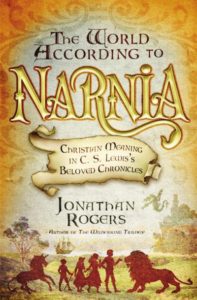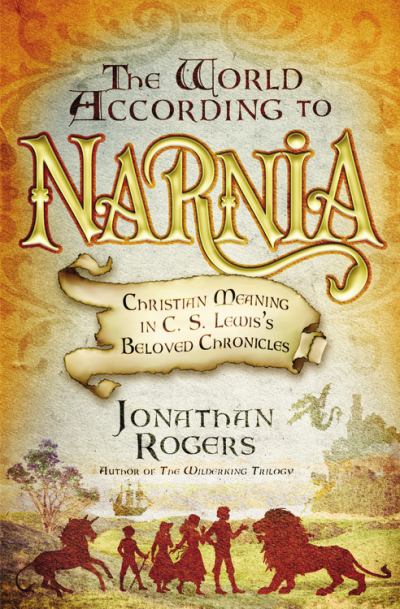Paganism In ‘Prince Caspian’
 Most Narnia fans don’t mind fauns and briefly mentioned dryads and even “gods” in The Lion, the Witch and the Wardrobe.
Most Narnia fans don’t mind fauns and briefly mentioned dryads and even “gods” in The Lion, the Witch and the Wardrobe.
But what about its sequel, Prince Caspian, with all its “gods” and specific pagan figures such as Bacchus and Silenus?1
In years past I disliked those portions of the story. At best, too random, I thought. Too weird. The battle is better; why not simply cut all this “romp” and party stuff?2 Since then I’ve changed my view, and was fairly certain I knew why.
Yet it wasn’t until this portion from The World According to Narnia by Jonathan Rogers (known for his fiction Wilderking Trilogy and The Charlatan’s Boy) that I read a simple, positive articulation for Prince Caspian‘s “paganism.”
Some Christian readers may be troubled by the wild paganism to be found in the last few chapters of Prince Caspian–the river gods and forest goddesses, Silenus and Baccus and his maenads. As Susan Says, “I shouldn’t have felt safe with Bacchus and his wild girls if we’d met them without Aslan.” She’s quite right: Bacchus and his train would be a dangerous lot indeed if they were left to their own devices. Those who don’t believe it can visit Panama City some spring break and see for themselves. But Aslan is here, and all that wildness and freedom are an expression of the enlivening, joy-giving, creative enegies of Aslan himself. What Lewis says of the God of the Bible is true of Aslan:
Is it He who sends rain into the furrows till the valleys stand so thick with corn that they laugh and sing. The trees of the wood rejoice before Him and His voice causes the wild deer to bring forth their young. He is the God of wheat and wine and oil. In that respect He is constantly doing all the things that Nature-Gods do: He is Bacchus, Venus, Ceres all rolled into one.3
This is not polytheism that is breaking out in Narnia. The little nature gods of Narnia do not set themselves up as rivals to Aslan. They are his servants, just as Trufflehunter and the Pevensies, and now Trumpkin, are his servants.4
- For more about these figures, see Speculative Faith Reading Group 2: Meeting Mr. Tumnus. ↩
- Makers of the 2008 Prince Caspian film clearly agreed. ↩
- Original footnote: Lewis, Miracles, 184. ↩
- Rogers, Jonathan. The World According to Narnia: Christian Meaning in C.S. Lewis’s Beloved Chronicles, pp. 47-48 (2005, Time Warner Book Group). ↩





























I always loved that bit of Prince Caspian. The fact that I knew it was missed out was one of the reasons I was not interested in watching the movie.